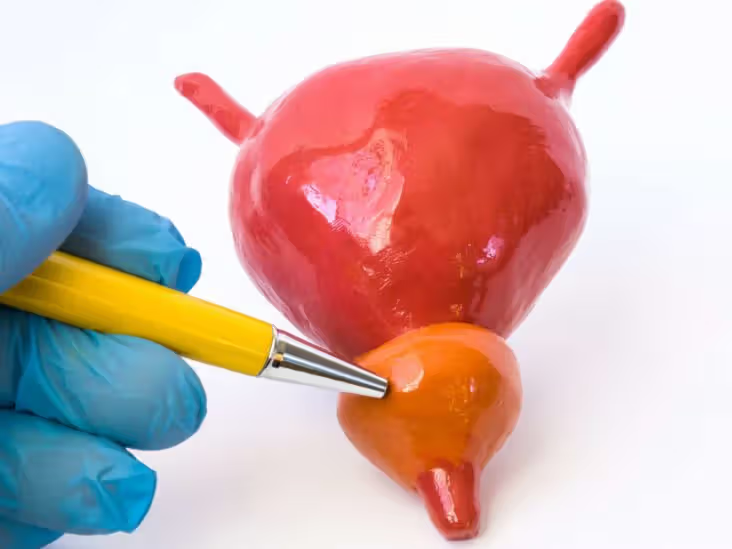Prostatitis, an inflammation of the prostate gland, is a common condition that affects many men, particularly those between the ages of 30 and 50. Symptoms can include pain during urination, discomfort in the pelvic area, and difficulty with sexual function. While prostatitis can be caused by infections, lifestyle factors, and even stress, there are natural remedies that may help alleviate symptoms and support prostate health. In this blog post, we’ll explore some home remedies that have been reported to help reverse or reduce the symptoms of prostatitis.
Understanding Prostatitis
Prostatitis can take several forms, including acute bacterial prostatitis, chronic bacterial prostatitis, and non-bacterial prostatitis. The latter, also known as chronic pelvic pain syndrome, is the most common form and can be particularly frustrating to manage due to its unclear causes. Treatment often involves antibiotics for bacterial cases, but for non-bacterial prostatitis, the focus may shift to managing symptoms and inflammation.
1. Herbal Remedies
Certain herbs have been traditionally used to support prostate health and reduce inflammation associated with prostatitis. Some popular herbs include:
- Saw Palmetto: This herb has been widely used to improve urinary symptoms and reduce inflammation in the prostate. It works by inhibiting the action of enzymes that contribute to prostate enlargement.
- Cranberry: Known for its ability to prevent urinary tract infections, cranberry may also help reduce the risk of prostate infections and improve urinary flow.
- Stinging Nettle: Often used in combination with other herbs like saw palmetto, stinging nettle may help with reducing the symptoms of prostatitis by supporting the urinary system and reducing inflammation.
2. Prostate Massage
Prostate massage has been a traditional remedy for prostatitis, particularly for those with chronic non-bacterial prostatitis. This technique involves gently massaging the prostate to relieve congestion, improve blood flow, and potentially reduce symptoms like pelvic pain and urinary urgency. Some men report significant symptom relief after undergoing regular prostate massages.
However, prostate massage should be done carefully and under the guidance of a healthcare professional to avoid injury or discomfort.
3. Dietary Changes
A healthy diet is essential for managing prostatitis. Certain foods have anti-inflammatory properties that can help reduce symptoms. Here are some dietary changes that may help:
- Increase Omega-3 Fatty Acids: Omega-3 fatty acids, found in fish like salmon, flaxseeds, and walnuts, are known for their anti-inflammatory effects. Adding more omega-3s to your diet can help reduce inflammation in the prostate.
- Eat More Antioxidants: Foods rich in antioxidants, such as berries, tomatoes, and leafy greens, can help protect the prostate from oxidative stress, which is linked to inflammation.
- Limit Caffeine and Alcohol: Both caffeine and alcohol can irritate the bladder and prostate, potentially worsening symptoms of prostatitis. Reducing or eliminating these substances from your diet may improve your condition.
4. Warm Baths and Sitz Baths
Soaking in a warm bath or sitz bath (where only the pelvic region is submerged in warm water) can provide immediate relief from the pain and discomfort associated with prostatitis. The warm water helps to relax the pelvic muscles, reduce inflammation, and improve blood circulation to the area. For added benefit, consider adding Epsom salts to the bath, as magnesium is known for its muscle-relaxing properties.
5. Stress Management
Chronic stress is often a contributing factor to prostatitis, particularly in cases of non-bacterial prostatitis. Managing stress can be crucial in reducing symptoms. Techniques like deep breathing exercises, meditation, yoga, and regular physical activity can help lower stress levels and, in turn, reduce inflammation in the body.
6. Adequate Hydration
Staying well-hydrated is essential for overall health and can play a role in reducing the symptoms of prostatitis. Drinking plenty of water helps flush out toxins from the body and prevents bladder irritation. However, be mindful of excessive fluid intake before bedtime to avoid disruptions in sleep.
7. Pelvic Floor Exercises
Strengthening the pelvic floor muscles can also help alleviate symptoms of prostatitis. Pelvic floor exercises, such as Kegels, involve contracting and relaxing the muscles of the pelvic region. These exercises can improve blood flow, reduce pelvic pain, and enhance bladder control.
Conclusion
While prostatitis can be a challenging condition to manage, several home remedies may help reduce inflammation and alleviate symptoms. Herbal remedies, dietary adjustments, stress management, and lifestyle changes like pelvic floor exercises and warm baths can offer relief and support overall prostate health. However, it’s essential to consult with a healthcare professional before trying any new treatments, especially if you have chronic or severe symptoms.
By incorporating these home remedies into your routine, you can take a more active role in your health and potentially improve your quality of life while managing prostatitis.

